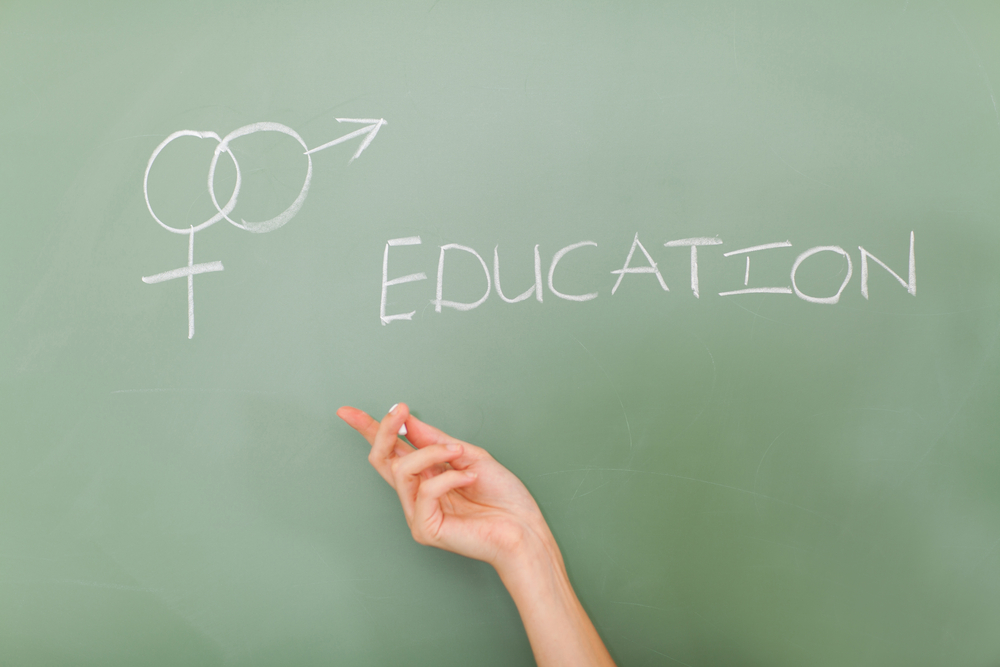As Kansas weighs restrictions on sex ed, sexuality experts say it’s already inadequate

Sex education has been a hot topic of debate in the Kansas Legislature recently. While some lawmakers want to restrict how sex education programs are taught across the state, some sexuality experts say they are already inadequate in preparing students to be healthy adults.
As the Kansas Legislature discusses restricting how sex education can be taught across the state, some sexuality experts say the programs are already inadequate in preparing students for adulthood.
A Kansas state senator recently introduced a bill to require parents or guardians to “opt in” if they wanted their children to receive sex education; that would reverse the Lawrence school district’s policy, where parents currently have the choice to “opt out.” Either way, it won’t affect the curriculum.
Last year, the Lawrence school board adopted more comprehensive sex education standards, replacing a curriculum that, using 2006 guidelines from the Kansas Board of Education, taught abstinence as the only form of birth control before marriage. Lawrence students will now learn such topics as human sexuality, sexual orientation and types of contraception other than abstinence.
The school district is in its first year of phasing in the new standards, which will take several years to institute, said Sarah Oatsvall, the district’s assistant director for teaching and learning. Eventually, the curriculum will, at minimum, discuss anatomy and physiology, puberty and adolescent development, sexual identity, pregnancy and reproduction, sexually transmitted diseases and HIV, healthy relationships and personal safety.
Still, some sexuality experts say modern sex education does a poor job of readying students to become well-adjusted adults in healthy sexual relationships.
Dennis Dailey, professor emeritus of social welfare at Kansas University and a private sex therapist in Lawrence, says he doesn’t recall ever seeing so many young, newly married couples struggle with intimacy — a phenomenon he attributes to abstinence-only programs that make students think of sex as a negative.
“Those students bring their guilt and their shame and their lack of knowledge into adult relationships, and it doesn’t pay off,” he said. “If falling in love and getting married guaranteed great sex, I wouldn’t be in business. I’d have to go into real estate or something.”
Advocates for comprehensive sex ed point often point to data they say show the failings of abstinence-only programs:
— Nearly half of high school students have had sexual intercourse, according to the Centers for Disease Control Prevention.
— Even though they make up a quarter of the sexually active population, young people between the ages of 15 and 24 acquire half of all sexually transmitted diseases.
— While the teen birth rate in America has declined in recent years, it is still the highest of any industrialized nation.
However, after a parent of a Shawnee Middle School student complained about a sex education poster that listed various sexual acts, state Sen. Mary Pilcher-Cook, R-Shawnee, introduced the parental “opt in” legislation. More recently, she proposed legislation that would punish teachers, librarians and schools for exposing students to offensive material. The poster in question asked, “How do people express their sexual feelings?” and included responses such as “oral sex,” “cuddling on the couch” and “touching each other’s genitals.”
James Good-DeCosta, a 16-year-old student at Lawrence Virtual School, said that, during his freshman year at Free State High School, sex education appeared to be an afterthought: taught for a week or two at the end of a semester, with dubious information, by an athletics coach. Good-DeCosta, a member of Lawrence Queer Youth Voice, said the course was particularly inadequate for students who don’t identify as heterosexual.
“Queer education … was not even touched upon, which is a huge problem because it completely marginalizes a group of people who still need to learn things and are still viable human beings,” remarked Good-DeCosta, who says he ended up leaving Free State, in part, because of the poor treatment he received from his peers. “To be honest, a lot of the things that did push me out of school could have been solved by a good sex education course.”
George Turner, associate professor of practice at the KU School of Social Welfare, says that when students don’t get sex education in schools, they’re bound to get it from “less accurate and less healthy sources,” like their friends or social media.
“We teach children letters at a young age. We teach them how to make sounds. We teach them how to read. We do that in progression to prepare them to be good, productive citizens, and we do that in an age-appropriate way,” said Turner, who is also a certified sex therapist in Kansas City, Mo. “It’s kind of unfortunate that we have 20-somethings — people who are going off to college, people who are getting married, people who are wanting to start families — who don’t understand their bodies. I think that’s a failure on our part.”







